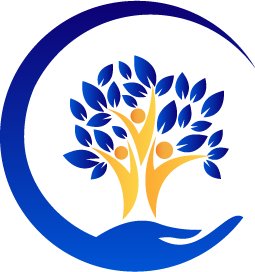I am not writing this to offer answers, solutions, or prescriptions. For more than 15 years, I worked in the medical field, and in that time, I had the privilege of caring for hundreds of people on their deathbeds. This is my testimony of what I witnessed during that time in the trenches and things I have wondered about since then.
Death care and grief care (including hospice, palliative care, death midwife/doula care, grief counseling, and general hospital and medical protocols) have evolved out of a consumer-driven medical system. Above all other motivations, modern medicine is in the customer satisfaction business. Who resides at the center of customer satisfaction? The consumer. Consequently, patient-centered care has become the gold standard of modern medicine. Autonomy is a foundational pillar of medical ethics, and personal choice and personal preference are presented as the ideal ways that all medical proceedings “should” go.
Inside the medical world, you are at the center of your life. Death and grief (like other maladies) exist on the periphery, which we must do our best to manage, mitigate, and cope with when they arise. Treatment options and therapies are primarily geared toward making death and grief more manageable, painless, and comfortable. The modern vision of a good death is synonymous with a quiet, painless death full of acceptance and dignity—one that few people notice or are affected by.
This is why you will never see death, dying, or grief as a part of the definition of health in any hospital, hospice center, or medical facility. What is satisfying about death or grief except to have as little of them as possible? As our culture continues to push grief and death further into the shadowy corners of our closets, our cultural death phobia and grief illiteracy continue to grow. It isn't hard to see that they've now become the midnight monsters we can no longer avoid.
Here’s the revolution: What happens when we move the patient away from the center of our care and put Death and Grief in their place? What might arise from that new orientation? How might our care shift when Death and Grief are the central focus?
The goal of Death-centered and Grief-centered care isn't to eliminate them, make them smaller parts of our lives, or help us cope with them better. Death and Grief ask much more from us. They are much more than things to mitigate and manage.
What if we were to think of Grief similar to how the poet Maria Rainier Rilke wrote about it?
“It’s possible I am pushing through solid rock
in flintlike layers, as the ore lies, alone;
I am such a long way in I see no way through,
and no space: everything is close to my face,
and everything close to my face is stone.
I don’t have much knowledge yet in grief
so this massive darkness makes me small.
You be the master: make yourself fierce, break in:
then your great transforming will happen to me,
and my great grief cry will happen to you.”
Grief is the master—the teacher, a wise elder adeptly and artfully skilled in the “Way It Is.” What can we learn from her? How does she move? What is her etiquette? What does she ask of us?
Similarly, what if Death is something closer to a deity? How, then, would you approach it? Not through mitigation or management but with something much closer to devotion. Death is the most assured presence we have in our lives, yet nothing is reassuring about it in our culture. As a deity, what kind of reverence might Death require of us? What are Death’s customs and rituals? What does Death ask of us?
The reality is that you aren't obligated to feel satisfied, happy, positive, accepting, or fulfilled in your dying time. Death really isn't concerned with the feelings you have about it. Not everything about life, including death, dying, and grief, will go the way you want or expect.
Unto whom does your death belong? Your death is not for you because life doesn't end when you die. Life is much bigger than each of our individual lives.

